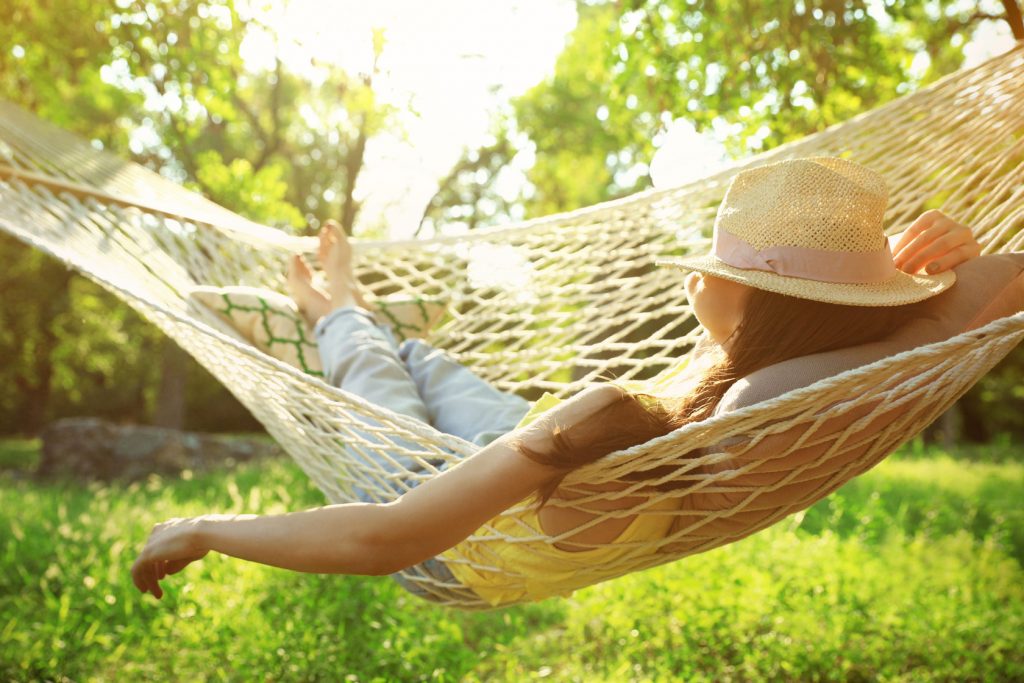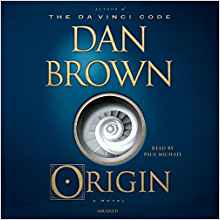
Bring back those lazy, hazy days of summer.
My favorite memories of summer—and probably yours—are those idle days of doing nothing: climbing a tree with a book, lying in the grass checking out the shapes of clouds, tooling up and down the street on my bike with no destination in mind, sitting on a dock with my feet in the lake letting the minnows snack on my toes.
The modern world—at least that part occupied by adults—has forgotten how to be idle, writes Celeste Headlee, in her book Do Nothing: How to Break Away from Overworking, Overdoing, and Underliving. In the post-World War II boom, Americans had an unprecedented amount of leisure time and they used it creatively with hobbies: making models, jewelry, mosaics, painting by number, learning ham radio, cutting rocks, racing soapboxes, collecting stamps, minerals, butterflies. Communities abounded with hobby shops and clubs.
But we’ve forgotten how to relax.
Today, despite labor-saving devices and technology, we have even more leisure time available to us. Or we should have. Yet the need, or even the obligation, to work has become more frantic, not less. People go in to work early, stay late, answer emails and take calls on the weekends and into the evenings. The line between work and home has become blurred, with office spaces becoming more homelike, and our homes becoming second offices. (This second aspect has become magnified, of course, by the pandemic.)
When hobbies should be booming, they seem to be dying out. Rock shops, model shops, and even places like Radio Shack have disappeared. Clubs have shuttered for lack of members. Why?
Idleness as a mark of moral weakness.
It’s not necessarily the technology that has done this to us, write Headlee, but a mind-set that says idleness, leisure are bad. They’re signs of laziness, of moral weakness. This came about in the Industrial Age, with the introduction of machines that needed to be fed and tended, and the introduction of the hourly wage. When that happened, time became equated with money, so not filling our time with gainful activities became considered a waste of time, and idleness became laziness—one of the seven deadly sins
Hobbies have been victims of this incessant urge to “busy-ness.” Even if you do have a hobby, you’re a slacker if you don’t feel the need to monetize it. We can’t take a picture of something for our own enjoyment, she writes, we have to make it “Instagrammable.” We’re pressured not just to cook a tasty meal, but to plate it so it looks like the highly staged photos in cookbooks and seen on cooking shows. Failure lurks around every corner. As does the stress, and the sense that you are not good enough, or that you don’t work hard enough.
We’re working longer hours and getting less done.
You’d think that with this drive to self-improvement and the use of every waking minute, productivity and innovation would be through the roof. Yet despite the increasing efforts to measure up, to do more, productivity does not go up, it goes down. Headlee quotes numerous studies that show that when a business cuts employee hours, people are actually more productive. The time spent in idleness—lying on the couch daydreaming, walking with a friend, enjoying a movie with family—without feeling that you should be doing something “productive,” is actually some of the most productive time you can have. “Leisure,” she says, “is not a synonym for inactive.”
What if we just found time to “chill”?
She acknowledges that not everyone in this world can simply work fewer hours, or turn off their cell phones, that some people have to work several jobs just to keep a roof over their heads. But she asks the question: What would people become, be, dream, if their basic needs—food, water, shelter, clothing, medical care—were covered? If we only sought wage or salary work to pay for the things we wanted—the car, the vacation, the education?
This is an apt question with discussions about universal basic income payments seemingly everywhere right now. With unemployment payments up during the pandemic, and people relieved of the worry about earning enough for food, many have gone back to school to be able to get a better job. Others have started their own online businesses. People learned to cook, to bake, to make entertaining videos. And what about the people isolated in hotels or on ships who made wardrobes from the food delivery bags? Hobbies—and creativity—made a return. And how much innovation will we see as a result?
Taking time to wander.
One of my favorite pieces in the book is when Headlee tells the story of driving somewhere with her young son. The car in front of them sported the bumper sticker: Not all those who wander are lost. Her son observed that it must be an old bumper sticker because no one gets lost anymore: they all have GPS. She thought he was joking, but he was not. Headlee notes that we have lost the ability to wander aimlessly, and no longer have the tolerance for getting lost—for making mistakes, taking wrong turns. As a result we don’t make the discoveries that lay around those unknown or unplanned-for detours.
So what’s the answer?
Headlee suggests that we all take some time to rethink our use of time. Think about how we use the technology that keeps us chained. Think about how we can release others from their desperate need to work just to survive. Think about how to fully live the lives we have. “When we reclaim our time,” she says, “we reclaim our humanity.”
Do Nothing: How to Break Away from Overworking, Overdoing, and Underliving is an engaging, fascinating, thought-provoking read, and I highly recommend it. For those who enjoy audiobooks (so that you can “multi-task”—a fallacy, says the author), Headlee, a former NPR host, reads her own work.


No Comments